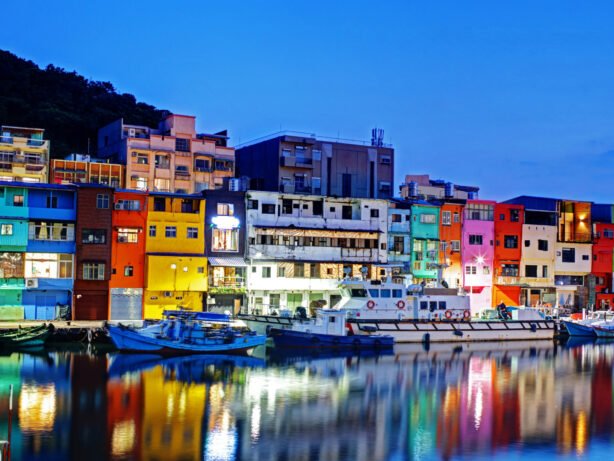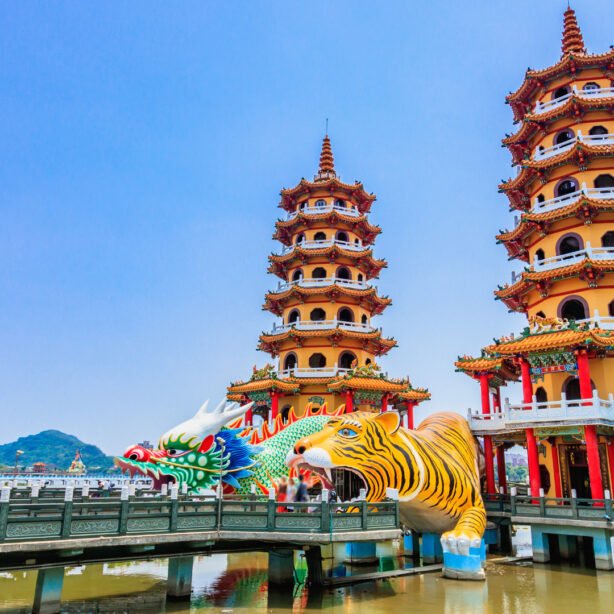Taiwan, a small island near China, is nearly 91 times smaller than India and almost close to the size of Kerala in India. It is officially known as ‘The Republic of China’, and its capital is Taipei.
Taiwan is the biggest hub of semiconductors
Being the fourth largest exporter of chips (the chip in your mobile phones), Taiwan is the biggest hub of semiconductors and has almost 50% percent of the global market. It is also the leading producer of chips for big companies like Nividia, Apple Inc. and also, for the top carmakers such as Volkswagen AG, Ford Motor Co. of the US, and Japan’s Toyota Motor Corp. You might be wondering, “What is chips, what is the application of chips, and why is it so much in demand?”

Taiwan And Its Manufacturing Sector
Well, you will always need man, material, and machine to function well in any sector. And when you have substantial mines of semiconductors, it is inevitable for any country like Taiwan to take it as an opportunity and pave a way for big companies to start manufacturing on their land. That is why Taiwan, which has a substantial number of semiconductors, is home to iPhone manufacturer Foxconn Technology Group, which has an advanced manufacturing and industrial ecosystem along with Techman Robo, one of the biggest makers of collaborative robots known as “Cobots.“ (Cobots work very closely with humans on a production line. They quickly read and act as asked, which makes them viable and irreplaceable kind of robot.)
Ever has anyone wondered, How does a company gain out of manufacturing its product in a foreign land and vice-versa? The answer to this question lies in the kind of practices it follows that increases the operational efficiency of a company and in turn creates job opportunities for all. Asus, Acer, Luxgen Motors, HIWIN to name a few, are all from Taiwan. HIWIN, in fact is a significant player in the manufacturing sector of Taiwan that makes the second-largest linear motion control system in work. Its product line ranges from producing nuts and bolts to producing industrial and medical robots. The enormous semiconductor industry of Taiwan owes HIWIN for its immense contribution towards the growth of semiconductor industry.




Sustainability: Taiwan
Although, an industry-only gives finished products, jobs, and revenue, but it is one’s sustainable methods and approaches that create the opportunity for the future generation.
In 2018, Taiwan even proposed a roadmap to a Circular Economy that focused on five major components:
- Sustainable consumption and production,
- Increased resource efficiency,
- Promoted consumer benefits,
- Sustainable management of materials,
- Waste to energy generation
So, How can we effectively implement a circular economy?
In a circular economy, the focus is on creating a ‘Circular product’. They try to make a product that gets evaluated throughout its life stages, keeping in mind, no energy gets wasted in the process. Recycling almost everything has always been a priority for Taiwan and the records are evidence of the same. Taiwan is even home to Asia’s first e-waste recycling facility and E&E Recycling is one of them. In an e-waste recycling facility, they recycle everything: refrigerator, AC, IT equipment and television.
This country, Taiwan has even been the second-best glass recycler after Sweden and Spring Pool being the largest recycling company doing the same. Here, there are recycling companies that sort and recycle plastic bottles and also convert them into polyester fiber. It even has a record of creating almost negligible pollution and has spectacular greenery around in nearly all cities.
Final Thoughts
In spite of the commendable task mentioned above, recently, this country Taiwan faced the worst drought in decades leading to a cut in the water supply to areas including the vital hub of semiconductor manufacturing unit.
No matter what Taiwan has gone through, innovation has always been a key for them. Despite the considerable brain drain it has been facing for quite some time to China. Although no one is perfect, it is the people of that nation that try to make it one and so is the case with Taiwan.
Subscribe to new post
The One Liner
Useful Links
Order Related Queries
Useful Links
Order Related Queries




